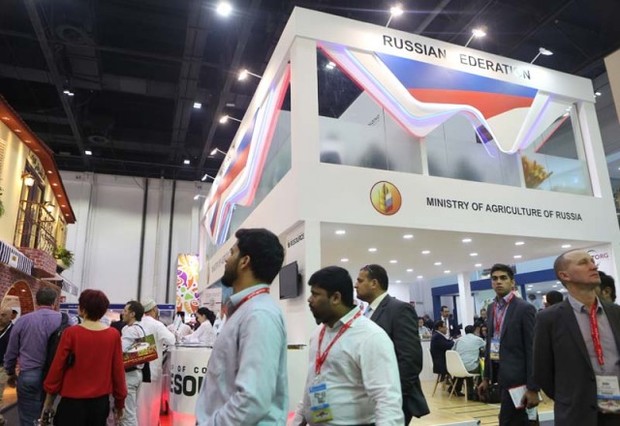Russia interested in entering Middle Eastern food and beverage sector
Russian food manufacturing machinery heavyweights are aiming to satisfy a mid-range demand of Middle Eastern food producers. As the Russian government has made import substitution and development of domestic agricultural production a national priority, its importers are eager to turn into exporters.
Russian food manufacturing solutions providers are planning to enter the food and beverage sector of the Gulf, wider Middle East and India, reports Gulf Digital News. This market is predicted to grow 7.4% a year to 2020, according to Euromonitor International. The first negotiations were held on an exhibition called Gulfood Manufacturing in Dubai on 7-9 November 2016. Russian participants have begun talks with food systems buyers from the UAE, South Africa, Iran, India and Qatar.
This is the first time Russian enterprises have participated in the Middle East's biggest food manufacturing, processing and packaging exhibition. The country was represented by four food manufacturing machinery heavyweights: Dito Group, Kropotkin Plant MiSSP, Shokolend Co. and Unity Food Machinery. The companies presented bakery equipment, high-tech equipment for the drinks, dairy and edible oil sectors, confectionery machinery and meat processing equipment. Kropotkin Plant, which is one of the country's biggest suppliers of moulding, filling, labelling and packaging equipment, also demonstrated its 3D-format container technology.

The Russian manufacturers are aiming to satisfy a mid-range demand of Middle Eastern food producers. 'We came to test the market and have realised that we can plug a gap between European providers and low-cost Far Eastern suppliers,' said Vladimir Gorishny, head of department at Kropotkin Plant. 'The buyers we've met are interested in the fact that our products are made with European-standard electronics and proven Russian metalwork expertise and offer a unique competitive edge. The result is we are not as expensive as European products but not as cheap as some from China. We fall within the mid-range at European quality standards which has appeal to small and medium-sized enterprises,' he added. This year, a relatively low value of the ruble makes Russian products more internationally competitive than ever.
'Russian participation opens up huge business opportunities for regional buyers,' said Trixie LohMirmand, the senior vice president Events & Exhibitions, Dubai World Trade Centre. 'Not only are the Russian companies looking for new distribution channels and direct buyers, they are keen to explore partnership agreements.'
According to a USDA Foreign Agricultural Services report, the Russian government has made import substitution and development of domestic agricultural production a national priority. Thus, the country's food processing sector is now benefiting from special support programmes.